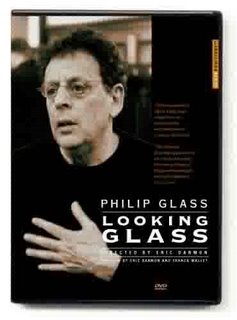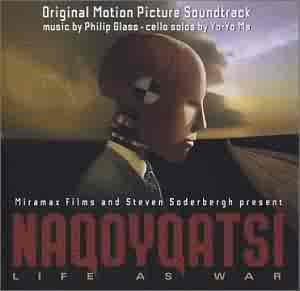
I have had a failed relationship that just now I am ready to talk about: the piano. Arggh. It aches me just to talk about it.
I am talking about my incompetence at the keys, my plumber's hands at the ivories, my bull-in-a-china-shop piano playing. Strictly speaking, I am a failure at the piano. There. Weeks of support group have allowed me to say that.
So complete is my failure, that I have joined Piano Players Anonymous- a group that meets every Thursday evening. There, in the basement of a church, we first congregate around really bad coffee and second-rate donuts before we get down to the painful business of recovery. We settle in, sitting in a circle and then some brave soul gets up and begins to spin a very familiar tale.
"My parents insisted that I take lessons."
A collective groan from the group always follows. I've seen grown men have to hide their tears. They usually bend over in their seat and try to shield their faces or pretend that they suddenly need to clean the lens of their glasses. The group draws no attention to this very familiar tactic.
"And no matter how horridly I played, they kept bringing me back each week."
A woman says outloud without realizing: "Me too!" Someone places a comforting hand on her shoulder. We are here for each other, no doubt.
"And every week I mauled Beethoven..."
"Fur Elise!" Yes! We all gasp. Most of us suffered through the first part, but then hit the Ivory Wall at the B section. Our collective pain is like a wave, flowing in sync from one to the other.
"Or Mozart. Schumann. Even the most basic four-part hymns. I just couldn't..."
"Mrs. [fill in your teacher's name here] was so nice, but I know she must have loathed to see the one student she had failed to teach come in that door every week! Years later, I saw her and I swear to you all that she crossed the street to avoid me!"
Silence. Then quietly, the clincher always comes:
"I just didn't get it."
That one never loses it punch. Usually there follows a pregnant silence as we all go suddenly into self-reflection mode replaying the same weary questions: Why didn't I get it? How can your hands do two different things at the same time? How can the man-ape navigate eighty-eight uneven keys?? Shouldn't he be hunting/gathering rather than trying this intricate task? The man-ape can only pound upon it hoping to kill and eat it. This is my plight.
 I always think of that scence from 2001: A Space Odyssey when the apes gather around the strange black monolith sensing its power, but can not grasp the meaning.
I always think of that scence from 2001: A Space Odyssey when the apes gather around the strange black monolith sensing its power, but can not grasp the meaning.
My own story is hardly unique.
My parents had good intentions. They said the piano was a basic instrument that all musicians had to learn how to play and since I was going to be a music major, the die was cast. The lessons were set for Friday after school at Herbert's Music in downtown Charleston.
Mrs. Lusk was not your regular piano teacher. "Eccentric" doesn't quite cover it. Her laugh was sincere and full, but a high cackle is the best way to describe it. I remember she wore garrish orange-colored pant suits that had with ice cream cone designs all over them. Yes, I am serious. Her claim to fame, according to her, was that she once worked with the Laurence Welk Show and every year they sent a Christmas card. "They're still want me back" she'd say.
She once told my parents that she believed that the Soviet Union was aiming some kind of invisible ray at the United States as a form of mind control. Her excentricities were written off by my parents because of her living conditions. Mrs. L definately had a hard existence and lived hand-to-mouth, residing in the old Holley Hotel. The kind of place that Tom Waits could write a fistful of songs about.
Mrs. Lusk taught me to practice each hand separately and then put them together.Well, it was the together part that always slowed my music reading down to a glacial pace. Shortly into the together part, I'd look over and Mrs. L was snoozing; probably dreaming of some far away place where prodigies dazzled her with Rachmaninoff and Liszt. Mrs. L never failed to fall asleep during my lessons, but I wasn't offended. I enjoyed the momentary freedom away from the Herculean effort at the ivories. Besides, I felt kind of sorry for her having a lamebrain like me for a student. We were both bearing through the unpleasant process, so if she wanted a little nap, well by God she deserved one. One time I watched the clock and she slept solidly for ten minutes complete with vocal fireworks. I'm surprised the people having lessons next door weren't completely disturbed by this.
The best part of the piano lessons was the trip afterwards to Arthur Treacher's-a fried fish place that was on Virginia Street. Fried fish swimming in malt vinegar with greasy "chips" for piano boy- a great reward for a mediocore piano student whose teacher fell asleep. Life is good. Mission accomplished.
My doomed relationship with the piano continued in college. It followed me like a shadow.
In college, I had a nice teacher who tried to get me to play some Chopin. Every week, she would tell me the same story about how Chopin and his love George Sand (a woman) spent this romantic period on an island together and thus was the inspiration for the piece I was practicing. I found that getting her to tell this story over and over again was an excellent way to waste most of the weekly half-hour lesson. She always obliged and never caught on. At the final playing exam, I could see her obvious disappointment when nerves got the best of me and I all but butchered the old Pole's beautiful music. Once again, that together thing threw me.
But there was hope. A hope not founded on competance or the lack thereof, but on reduction. A reduction of the complexities. Counterpoint? Nay, pounding-point. There was one course in college called Functional Piano that made me realize that not being pianistically gifted was not an impediment to enjoying playing. No finger exercises, no sonatas or four-part hymns, but take all the shortcuts. It was piano reduced down to its most basics: left hand plays chords while right hand plays melody. The man-ape gets that. Left hand and right together! Not separate- that hurts man-ape's brain.
This class was taught by Mr. Fitzgerald, who was, shall we say a bit colorful and flamboyant. "Fitzy", as we dubbed him, taught this class Friday at 8 AM. Friday at 8AM is a most brutal time for a college student who was unlikely to go to bed Thursday night. One such sleepless occasion involved a playing exam. I don't know how, but I passed with flying colors. I attribute this momentary success to Foster's Lager.
This one has a happy ending. Hurrah!
I get it from readers who ask, "Why are you always writing about bad things? Think happy thoughts, man." Well, this one has a happy ending.
Truthfully, I have resolved the struggle with the piano not based on competence, but through acceptance of my incompetence. I quit trying to play the piano properly and bring it down to my level: left hand chords-right hand melody. Sort of a guitarist's approach to it. Or simply: man-ape no longer fears fire, he has learned to cook with it.
If you took "pain-ano" (or other) lessons and my story has some ring of truth to it, all I can say is this: if you still regret not continuing playing, you are not alone.
We meet every Thursday night. Donuts are bad and the coffee worse, but the company is good.



